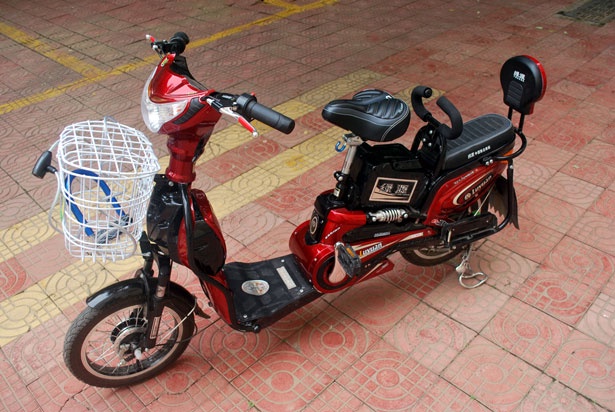Exploring the Future of Transportation: Electric Bikes
Introduction
In recent years, electric bikes, commonly known as e-bikes, have gained immense popularity as an eco-friendly and efficient mode of transportation. These innovative vehicles combine the convenience of traditional bicycles with the power of electric motors, offering an excellent solution for commuters, outdoor enthusiasts, and urban dwellers. In this article, we will delve into the world of electric bikes, discussing their benefits, technology, and their impact on the environment and personal mobility.
I. What are Electric Bikes?
Electric bikes are essentially bicycles with integrated electric motors that provide assistance to the rider when pedaling. This assistance can be activated either through a throttle or pedal-assist system, making it easier to cover longer distances, tackle steep inclines, or simply enjoy a smoother ride. E-bikes come in various styles, from mountain bikes to city cruisers, ensuring there's an option for everyone.
II. Benefits of Electric Bikes
-
Sustainable Transportation: E-bikes are an eco-friendly alternative to traditional gasoline-powered vehicles, reducing carbon emissions and decreasing dependence on fossil fuels.
-
Health and Fitness: Contrary to popular belief, e-bike riders still get exercise while pedaling, promoting cardiovascular health and physical well-being.
-
Cost-Efficient: Electric bikes are cost-effective in the long run, with lower maintenance and operating expenses compared to cars or motorcycles.
-
Commuting Convenience: E-bikes enable riders to navigate congested urban areas more efficiently, reducing commute times and stress.
-
Accessibility: E-bikes make cycling accessible to a broader demographic, including those who may not have the physical stamina for traditional biking.
III. Electric Bike Technology
-
Battery Systems: Electric bikes are powered by rechargeable lithium-ion batteries that store electrical energy. Battery capacity varies, affecting the e-bike's range, which can range from 20 to over 100 miles on a single charge.
-
Motors: E-bikes use various types of motors, such as hub motors (located in the wheel hub) or mid-drive motors (located near the pedals). These motors provide different riding experiences, with mid-drive motors offering better weight distribution and torque for climbing hills.
-
Control Systems: E-bikes feature control interfaces that allow riders to adjust power levels, monitor battery life, and control the level of assistance they receive while pedaling.
-
Regenerative Braking: Some e-bikes are equipped with regenerative braking systems, which convert kinetic energy back into electrical energy when braking or going downhill, extending battery life.
IV. Environmental Impact
E-bikes have a significantly lower carbon footprint compared to cars, reducing air pollution and traffic congestion in urban areas. Their energy consumption is minimal, and the materials used in their production are generally more sustainable compared to those used in manufacturing cars or motorcycles.
V. The Future of Personal Mobility
Electric bikes are a crucial component of the evolving landscape of personal mobility. They complement public transportation systems and offer a viable last-mile solution for commuters. As cities worldwide invest in infrastructure to accommodate e-bikes, we can expect to see even more widespread adoption and integration into daily life.
Conclusion
Electric bikes represent a greener, healthier, and more efficient mode of transportation that aligns with the changing demands of urban environments and environmentally conscious individuals. With advancements in technology and increased accessibility, electric bikes are poised to play a pivotal role in the future of personal mobility, offering a sustainable and enjoyable way to get from point A to point B. So, whether you're an avid cyclist or a city dweller looking to reduce your carbon footprint, consider giving an electric bike a spin and experience the ride of the future.


No comments yet